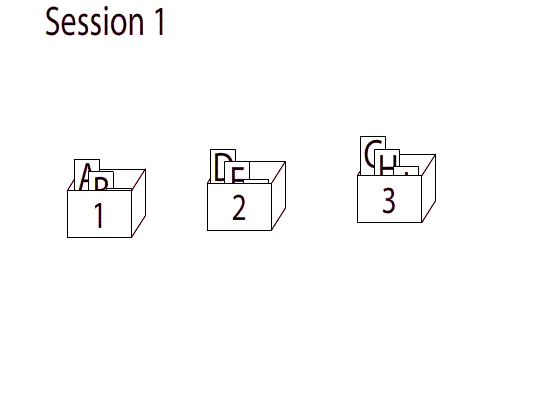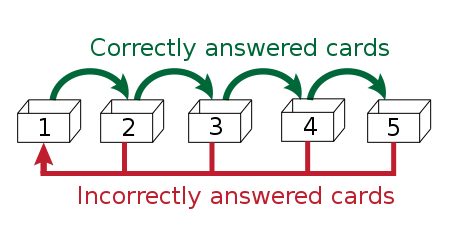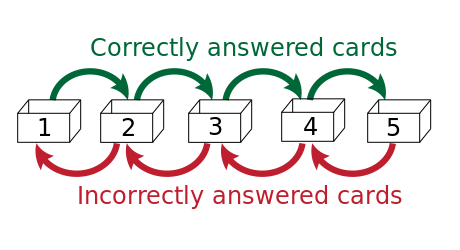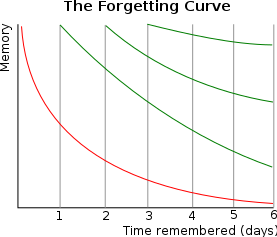Spaced Repetition will help you learn and REMEMBER English
Don’t forget to remember
A common strategy: OMG THERE’S A TEST TOMORROW I BETTER STUDY ALL NIGHT AND MEMORIZE EVERYTHING!
A common outcome: Mediocre pass of test. Forget everything immediately.
Why do we do this to ourselves??? Sure, we pass the test, but never actually improve our language skills. We never get better. We fill our brains, then our brains dump the information.
Enter Spaced Repetition
Spaced repetition is a learning technique where you increase the amount of time between review of material in order to exploit the psychological spacing effect. Learning is greater when studying is spread out over time, as opposed to studying the same amount of content in a single session (studying for a test the night before).
In the 1970s Sebastian Leitner created a very effective method of study using spaced repetition, where cards are reviewed at increasing intervals. Basically, cards are placed in several piles, and are studied at different intervals (daily, every two days, every three days…) where the “harder” cards, or cards that you answered incorrectly, are placed in the first pile, and ones you got right are advanced to the last pile.

Leitner System
Cards answered correctly studied less often, cards answered incorrectly studied more often.

Alternative Process
Cards are moved back one box instead of back to the beginning

You could set up this system yourself, though software is now available to handle card organization automatically. You could even use some of our online tools as “cards”, doing quizzes at regular intervals.
The Forgetting Curve
This system of spacing out your study time will help you remember. The “forgetting curve” is a mathematical formula that shows retention over time, and how quickly you will forget things. By using a spaced repetition technique, you can “ease” the curve, making memory of learned material stay longer. By adding in active learning and immersion, you give yourself the best chance of remembering language long-term.

I don’t have time to study!
Waiting for a bus, a train, a meal… these are all things that happens every day. Much of the time, we now default to playing a game, browsing Wechat or Weibo to pass the time. Hours of our lives are wasted per week “waiting”. This is the perfect time to spend a few minutes practicing. It will make your learning more productive and effective, you will end up having more “free time” because you filled those “mini spaces” with getting something done, and you find yourself becoming more organized in other parts of your life.
This comes back to the idea of “immersion” when learning a language, by re-visiting topics, techniques, and vocabulary, you will remember more and have a better foundation to build upon.
Have you tried this system? Let us know your experience in the comments!
